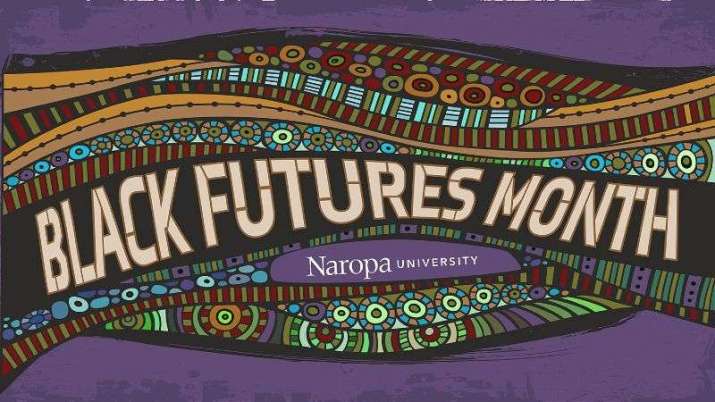NEWS
Naropa University in Colorado Celebrates First Black Futures Month
 From naropa.edu
From naropa.eduNaropa University, a Buddhist-inspired educational institution located in Boulder, Colorado, is celebrating Black Futures Month for the first time this February.
The event expands on Black History Month (also known as African American History Month), an annual celebration that takes place in February to highlight the achievements of Black people and their significant role in the history of North America.
According to Naropa University’s website, the event is aimed at inspiring people to imagine a world in which justice and equality can be met with equanimity. The idea of dedicating a month to Black Futures is relatively new, and was officially espoused by the Black Lives Matter movement in 2015:
First coined by American novelist N. K. Jemisin in a 2013 essay titled, How Long 'til Black Future Month?, and brought to fruition by the Black Lives Matter movement in 2015 by the Movement For Black Lives (m4bl.org), Black Futures Month harvests pan-African and Afro-future intellectual values, philosophies of liberation, insight, arts, music, expression, ‘discourse, and dissent’ that makes up the fabric of the Black diasporic experience, while centering Blackness, queer, and transfeminist perspectives. (Naropa)
Organized by Naropa’s newly formed Division of Mission, Culture, and Inclusive Community, the celebration opened with a 90-minute talk that focused on Blackness, Abolitionist Theory, and Buddhism in Black America.
 From naropa.edu
From naropa.eduStudents and members of the public are also provided with the opportunity to join two virtual Afro-Futurism workshops that explore the power of the Black imagination. The first workshop, The Ancestral Spaceship, was attended by 75 participants. The second workshop, Afro-Futurism: Astro-Blackness, will be held on 26–28 February. Registration for the workshop is open and can be accessed via the university’s website.
Naropa’s Black Futures Month also features a virtual lecture by Black feminist political theorist of abolition Dr. Jasmin Syedullah, who co-authored Radical Dharma: Talking Race, Love and Liberation (North Atlantic Books 2016). The event was streamed publicly on 4 February on Naropa’s Facebook and Youtube channels, and it is available on-demand here: Surviving White Supremacy: Towards a Radical Dharma of Staying Fugitive with Dr. Jasmine Syedullah
 From naropa.edu
From naropa.eduIn her talk, Dr. Syedullah highlighted American society’s dependency on a “one stop shop” to be safe. She denounced the drawbacks of the current judicial system in the US and its emphasis on policing and prisons, and invited participants to reimagine the current systems that only perpetuate racism and violence.
“This cry ‘I can’t breathe’ isn’t just the cry of those in distress,” Dr. Syedullah stated, referring to the last words uttered by George Floyd when he died at the hands of police officers last summer. “It is the cry of the nation.”
“As we turn this next chapter of executive leadership, I really want to invite us into a national period of radical contemplation. Radical contemplation on the future of our collective survival, healing, reckoning, and repair. What we need most right now are organized and intentional spaces curated for us to take deep dives into embodied practices that can decarcerate not just our minds, but our bodies, our relationships, and reliance on this punitive pattern of privatized freedom, and liberate us into the material truth of interdependence, interconnection, and love.”
Naropa University was founded in 1974 by Tibetan Buddhist scholar and lineage holder, Ven. Chögyam Trungpa Rinpoche (1940–87). The University values contemplative practice in addition to academic learning, and aims to equip students to “be the change” they want to see in their communities.
See more
Naropa University Celebrates 1st Black Futures Month (Naropa)
Related news from Buddhistdoor Global
Wisdom Mind Network Hosts Historic Black Wisdom Online Summit
Union Theological Seminary Hosts Panel on Being “Black and Buddhist in America”
New Mindfulness App Takes Aim at Socially Conscious Meditators
American Buddhist Women — On Race and Politics
How One Man Armed With Compassion Convinced 200 Racists to Quit the KKK
Related features from Buddhistdoor Global
Ignorance in the Era of COVID-19: Society’s Failure to Protect Black Communities in the US
Lama Rod Owens on Social Justice, Rest, and Resilience
Lama Rod Owens: Challenging Identity through Vulnerability
Standing Together: Rev. Angel Kyodo Williams’ Radical Dharma – Book Review














